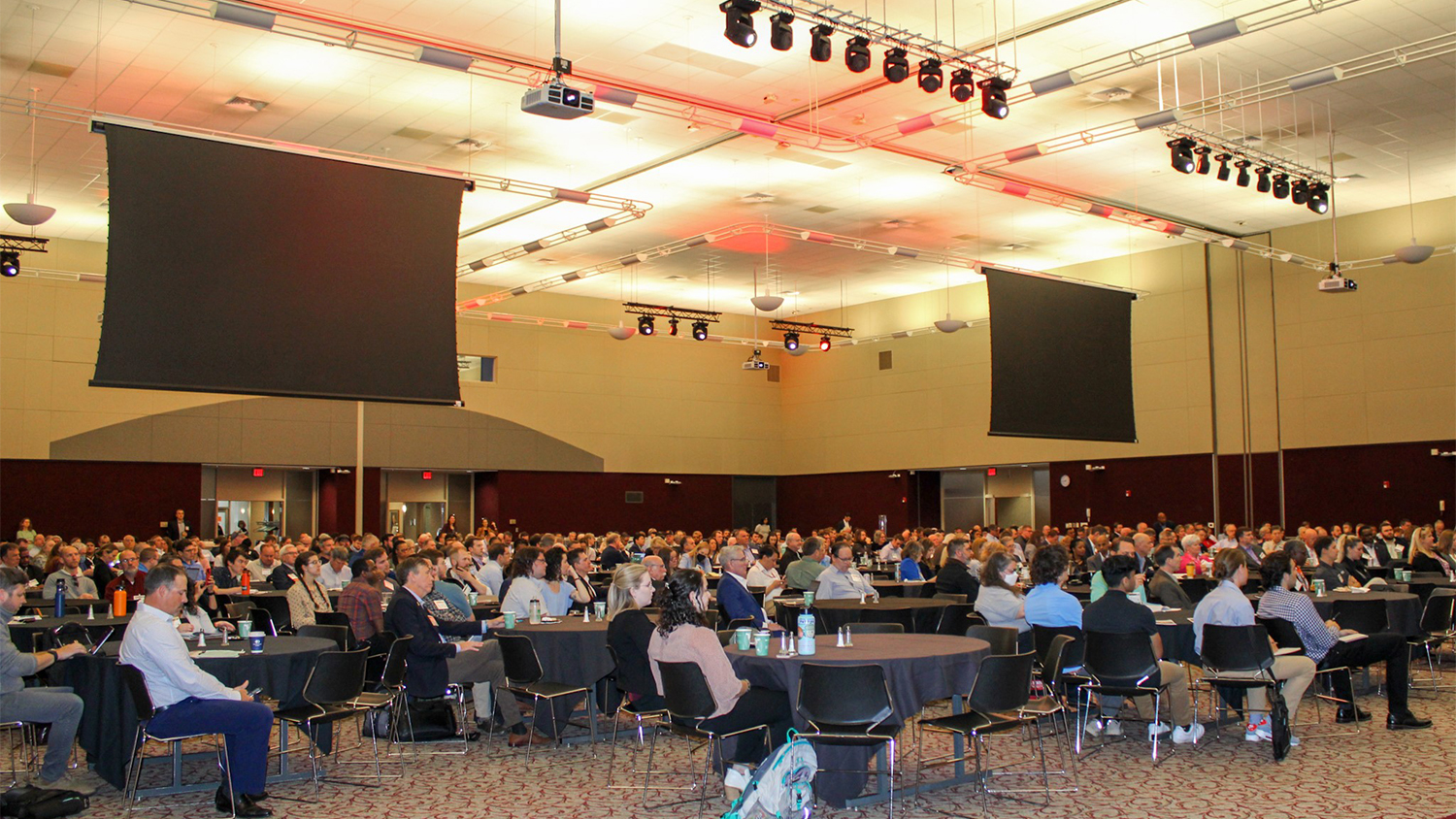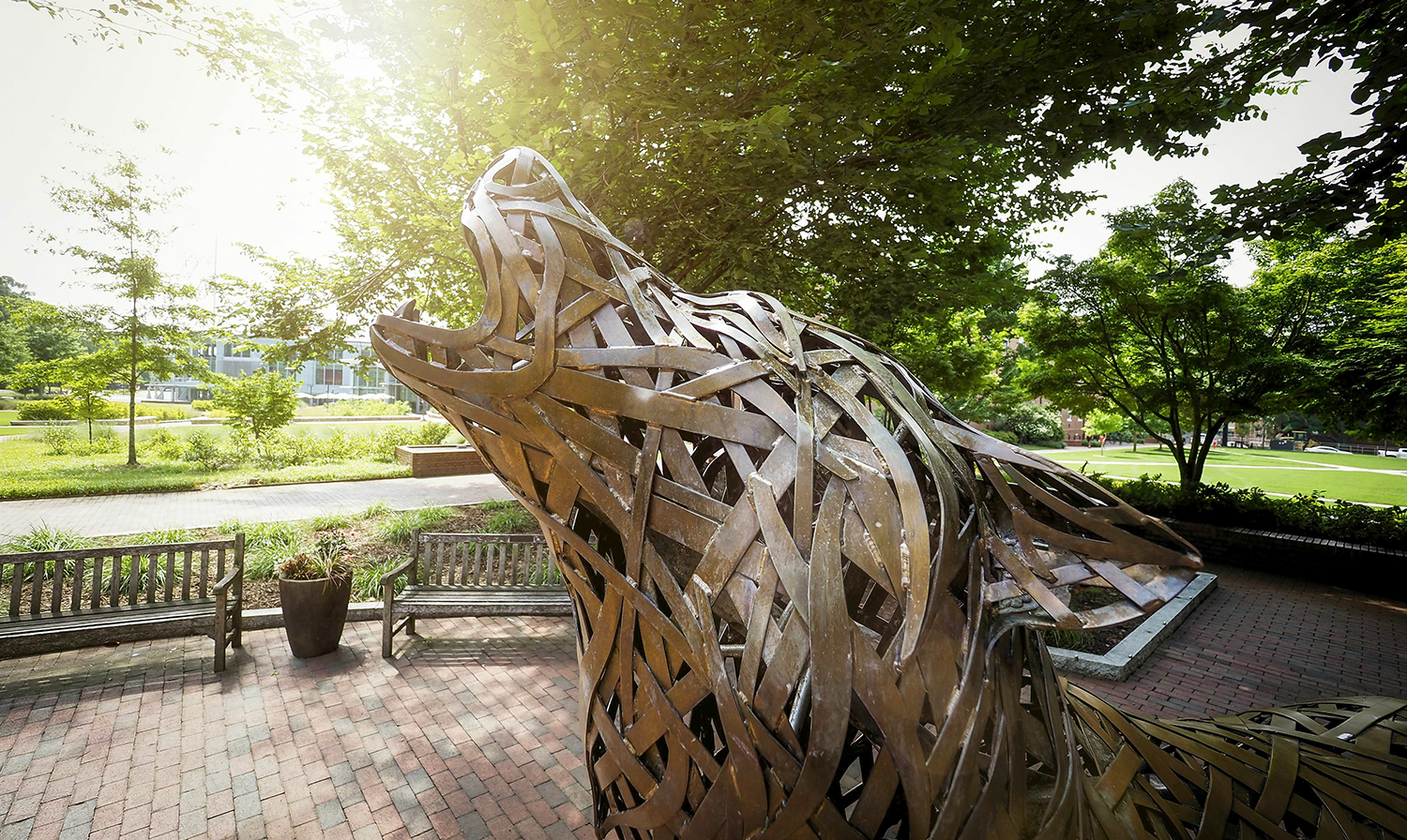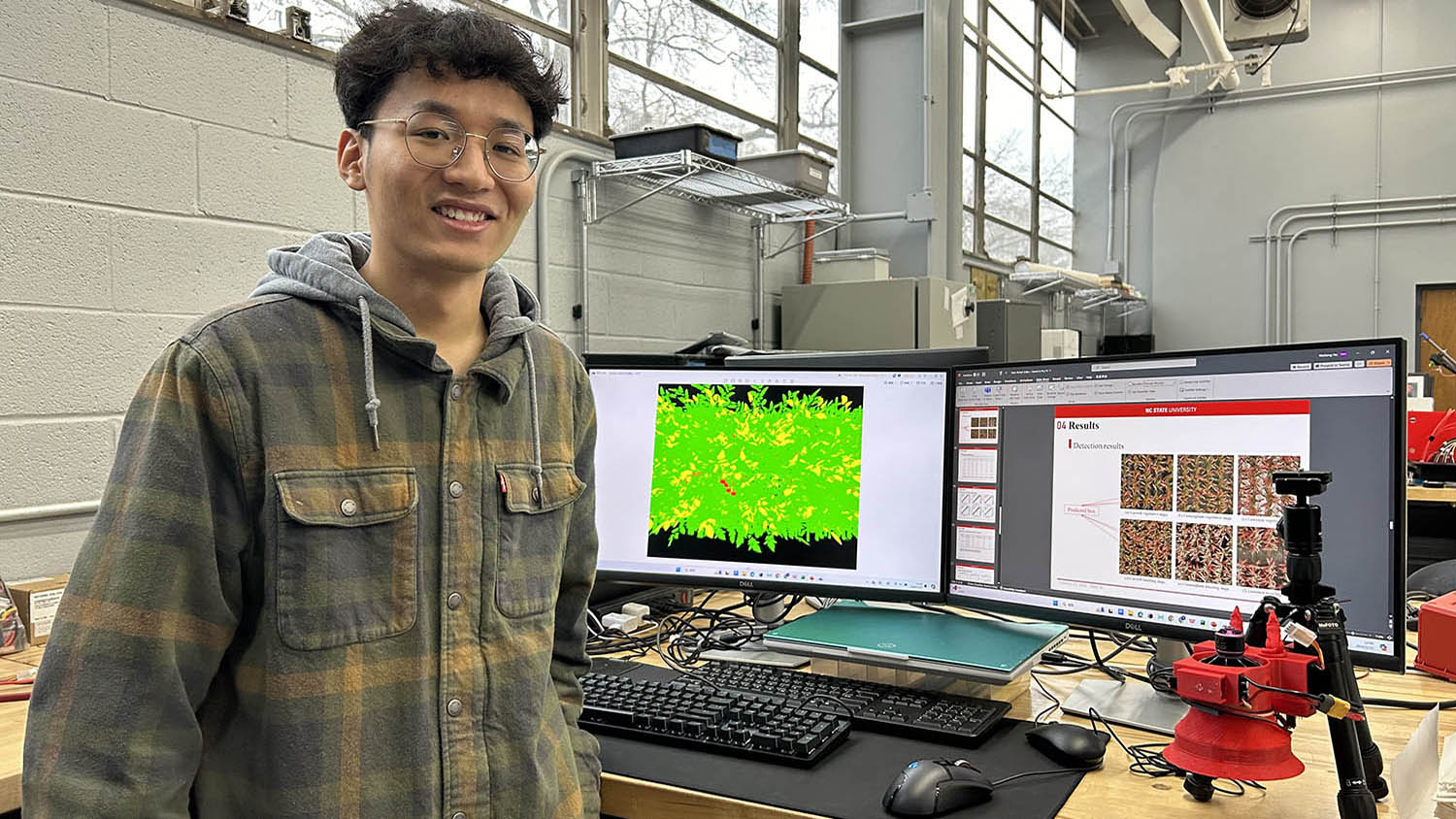Spotlight on our students: Robert Kobrin
The University Honors Program (UHP) interviews Robert Kobrin about his research on nanobiosensors at the ICN2 lab in Spain this summer.
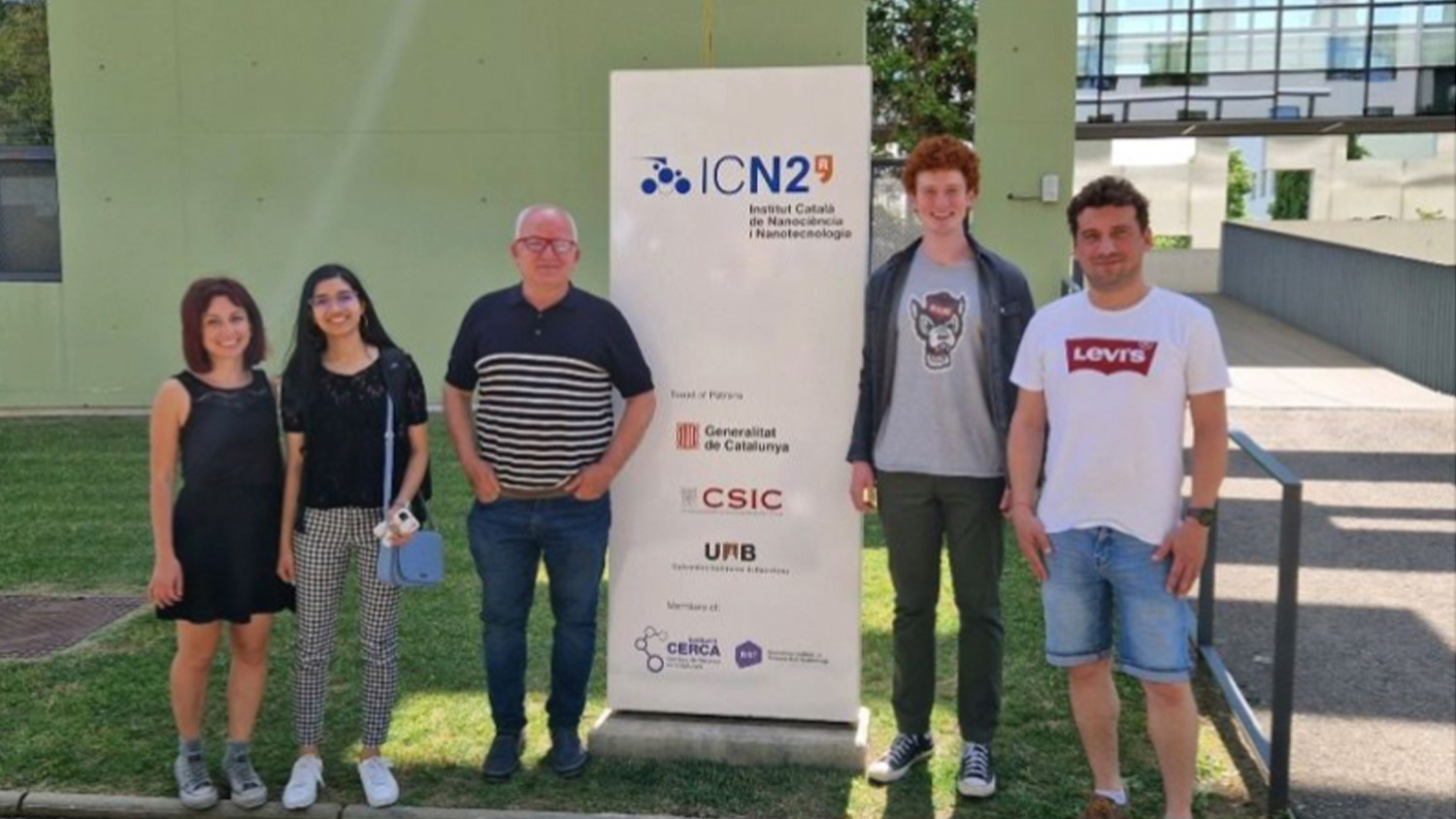
What sparked your interest in your specific line of research?
The in-depth nature of the research being done at ICN2 really drew me in. Biomedical engineering is such a broad field, and the opportunity to focus on something as specific and technical as nanobiosensors was incredibly exciting to me. In my lab at NC State I work with hydrogels and immunotherapeutics, so this was a cool little change of pace that allowed me to spend some time abroad. Another thing that I love about ICN2 is that it focuses on developing effective solutions that are also cost-effective, which can be rare in research.
What do you hope to learn from this research? What are the potential applications?
While there are definitely specific applications of the research, the broad takeaway that I’m hoping to figure out is if I would like to pursue a Ph.D. in a biomedical engineering-adjacent field after I graduate from NC State. Working in a lab that’s different from my work back home has definitely been helpful in making that decision. In terms of applications for the research, the most interesting one I can think of is the potential for contactless testing in closed environments such as research lab chambers or quarantine areas. The range of NFC transmission is up to 3-4 centimeters, making it possible to scan a sensor through a thin wall for test results without entering a contained environment.
What is the most interesting thing you’ve experienced so far while working on this project?
In terms of my actual research, I think that seeing the near-field communication (NFC) contactless technology in use for the first time was really incredible, as I’ve really only seen it used with credit card payments. I had never really considered the research applications of NFC, and it was an eye-opening experience for me. I can’t answer a question about “interesting” without mentioning our lab lunches. We’re an incredibly international lab with members from four continents, and eating lunch together makes for interesting conversations each and every day.
What has been the most challenging? Why?
The combination of entering a new country, lab and research field all at once was incredibly difficult, and there was definitely an adjustment period. I’m currently researching with another student from NC State, and we are both the only people from the United States as well as the only undergraduates in the lab. The members of the lab have done a fantastic job of welcoming us in and getting us worked into the lab culture, but it was very intimidating at the start. While I’m currently learning Spanish, I’m the only person in the lab group who doesn’t speak at least two languages, and it’s been a big motivator for me in improving my speaking abilities so that I can catch up!
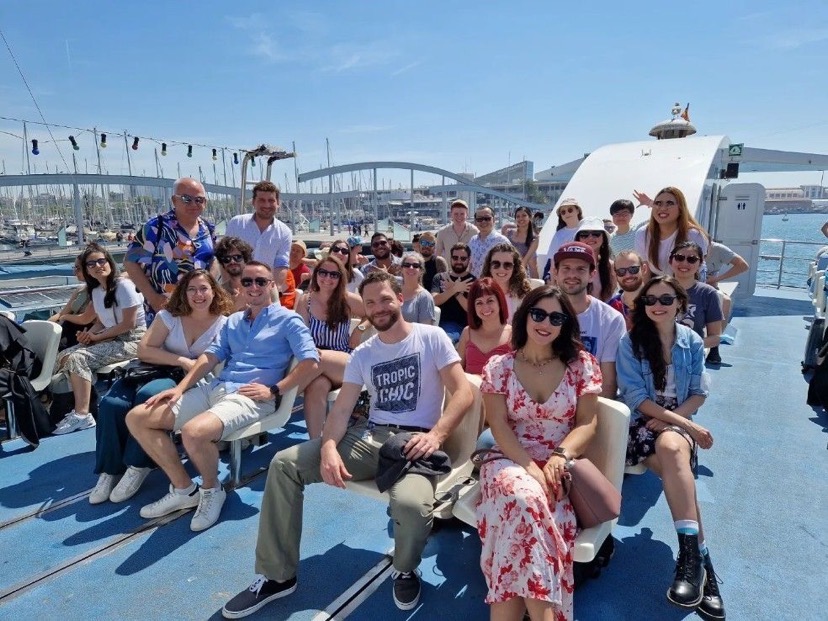
How has researching while in Spain been different than in the U.S.?
I would say that most of the differences have been cultural rather than technical as lab work is lab work regardless of location at the end of the day. Barcelona is an incredibly international city, and that is reflected in the population of my lab group. I’m constantly meeting new people from different countries and backgrounds who have all ended up here, and it makes every day a new experience. The lab group that I am working with at ICN2 is also massive with over 30 people, which has been a very different experience than my relatively small lab at NC State.
What is the most valuable thing you’ve learned from undergraduate research?
The most valuable thing I’ve learned from undergraduate research is just how big of a hand we have in creating the future. I’ve had the pleasure of working in two incredible labs as an undergraduate researcher along with some of the smartest people I have ever met. I never thought that I would do research when I entered college, so having the opportunity to work on different projects and seeing different people create things that I didn’t even know were possible has been a bit surreal.
How has your time in the UHP prepared you for this experience?
One of the ideas that I have encountered at NC State with the UHP is that learning and education are lifelong processes. Taking this mindset into a new country and new lab has made the transition a lot easier. Instead of beating myself down about not getting everything right the first day, I’ve been able to look at each day and conversation as an opportunity for growth and learning. So many interesting conversations and lab experiments have come out of this mindset of seeking learning, and it’s made my time here incredible.
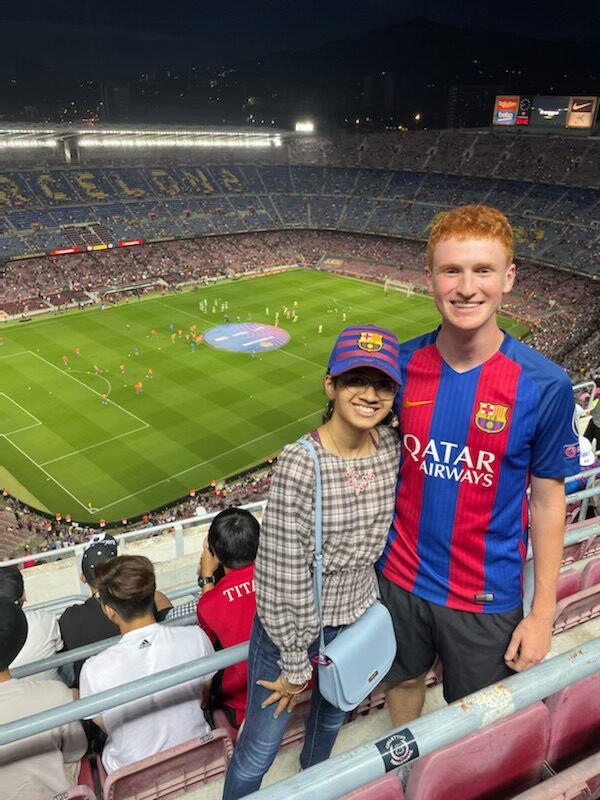
What do you want to tell other students about how to prepare for research opportunities like this?
Coming into a prestigious lab as one of the only undergraduates was a bit intimidating at first, but I generally have a “Why not me?” mentality surrounding research opportunities that I think can take you very far. Overconfidence is a bad thing, but I think that people often sell themselves short in terms of what they bring to the table. There’s no downside to applying to positions, contacting lab directors and presenting yourself as a viable candidate through your accomplishments.
What’s the best bit of advice you’ve ever received?
When I accepted this summer position from Fran and George Ligler, one of the last things that they told me in my interview was to make sure to live a little while I’m here. Being in Spain for the summer has been such an amazing opportunity, and I’ve tried my best to make the most of it. I’ve met people from all over the world, traveled to a few different countries, lost the world’s most dangerous cheese race, and more. It’s been the time of my life, and I’m very thankful to the Liglers, NC State and ICN2 for making it possible. Go Pack!
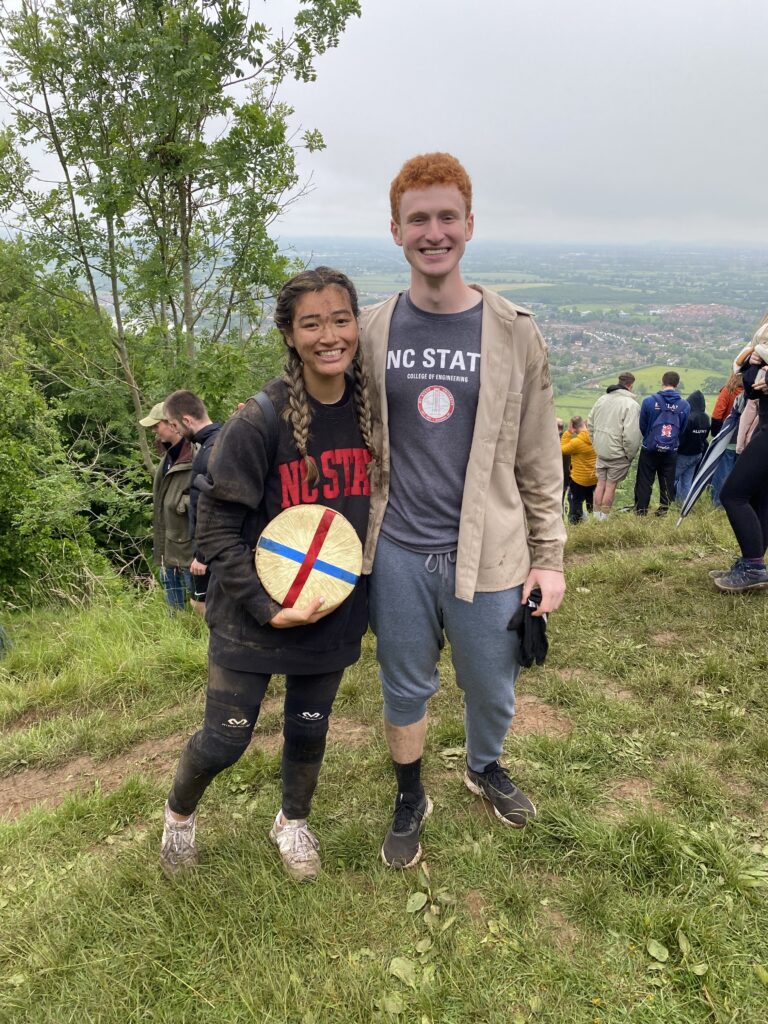
This post was originally published in DASA.
